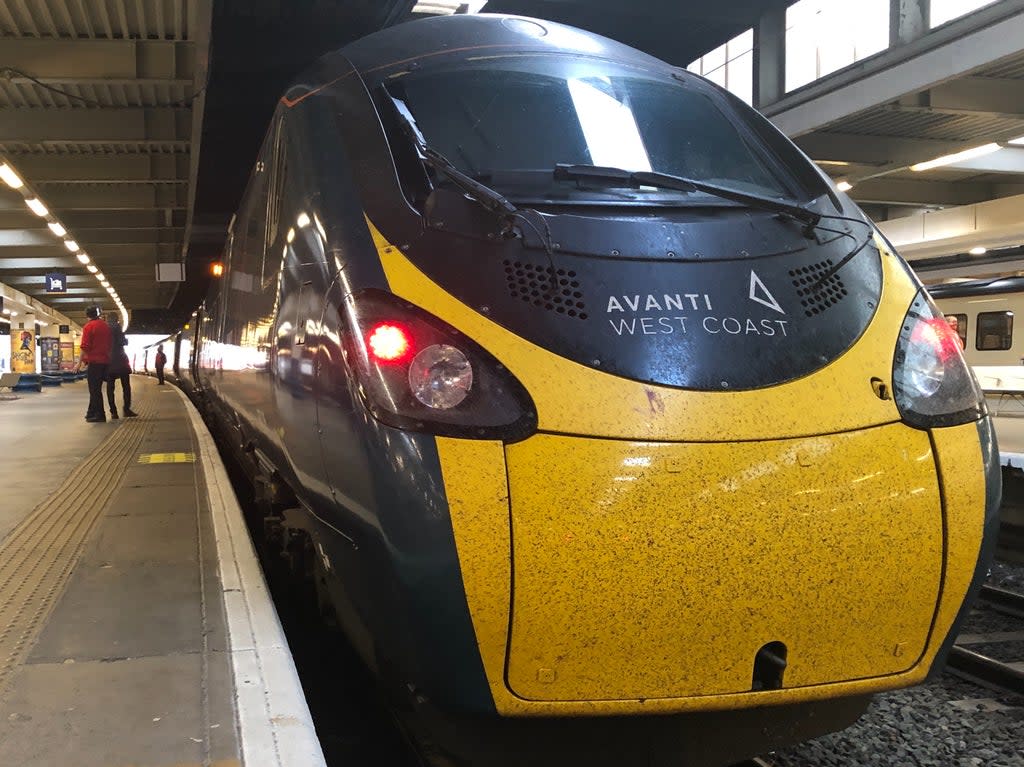Ministerial manoeuvres leave rail in the dark

Simon Calder, also known as The Man Who Pays His Way, has been writing about travel for The Independent since 1994. In his weekly opinion column, he explores a key travel issue – and what it means for you.
Who’d be a government minister? Sure, you get to announce plans for spending other people’s money; you are invited to open things on which taxpayers’ cash has previously been lavished; and, from what I can tell, you and are driven around in fancy cars. But imagine being a minister in the Department for Transport (DfT), responsible for the decarbonisation of transport at a time when the railways are imploding.
Neither passengers nor people who work in the railway industry can fault the benevolence of the Treasury in keeping trains running – many largely empty – during the coronavirus pandemic. Travellers and train operators have been massively subsidised to the tune of £15bn so far, which means £1m for every single hour since the Covid crisis began.
With revenue in free fall due to the end of commuting as many people know it, there is only one way to get back to the balance whereby the passenger pays roughly two-thirds of the cost, and the taxpayer makes up the rest: to increase the appeal of the railways, lure passengers out of their cars and entice discretionary travellers to make more journeys.
Yet all the indicators are going in the wrong direction. Wholesale schedule cuts on commuter services take effect on Monday morning, while the inter-city rail network is shrinking, too.
Avanti West Coast will run from London Euston to Birmingham and to Manchester just once an hour, compared with the pre-pandemic departures every 20 minutes. Links from the West Midlands and northwest England to Edinburgh are halved.
While some train operators insist the cause is staff shortage as a result of the Omicron variant, the underlying problem is passenger shortage. Since the start of the year, passenger numbers have averaged well below half of pre-pandemic figures.
Naturally, lower frequency reduces the appeal of rail still further: three trains an hour from Birmingham or Manchester to London held plenty of appeal for people travelling on business: narrowly missing a train meant a maximum wait of 20 minutes for the next one. With the downside now being an hour lost, some will switch to the motorway.
All hands are needed to turn the tide, starting with the government doing all it can to proclaim the many virtues of rail travel. Yet the junior transport minister, Trudy Harrison, chose instead to sing the praises of the prime minister.
The MP for Copeland – a beautiful patch of western Cumbria just off the West Coast Main Line – appeared on the airwaves on Wednesday not to discuss the future of travel, as is her departmental brief, but to promote the short-term future of the prime minister.
“That is not a party in my view of a party,” Ms Harrison told The World Tonight on BBC Radio in defence of Boris Johnson at that “work event” at No 10 on 20 May 2020. She went on to praise his “courageous determination to lead this country out of this pandemic”.
The nature of the British political system means that the decision-makers seeking to improve our lives are also tangled in the tricky political business of improving their careers.
Ms Harrison is simply doing what politicians do: championing the contender who most closely aligns with their instincts and, understandably, hoping for recognition and self-advancement at the same time. But just at the time when the rail industry and the net-zero agenda need maximum care and attention, the minister’s focus is elsewhere: assessing a drinks do in Downing Street 20 months ago. Back to the day job, please.

 Yahoo News
Yahoo News 
